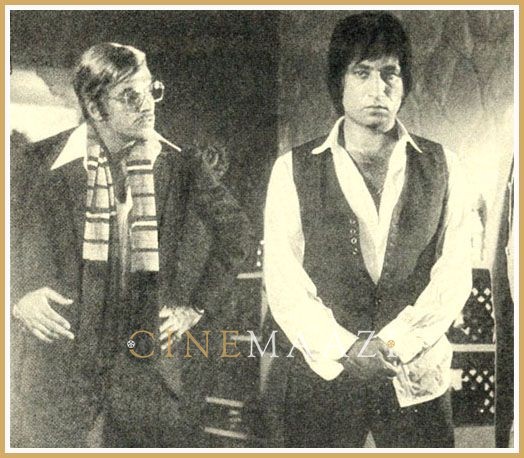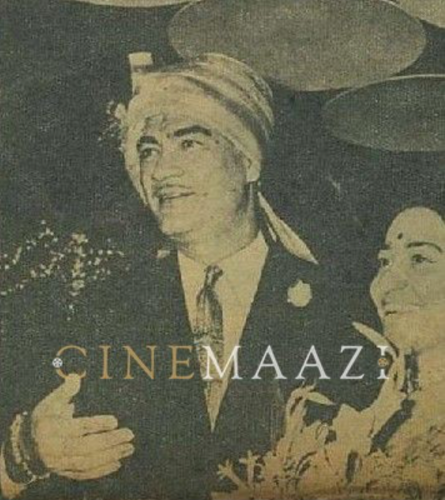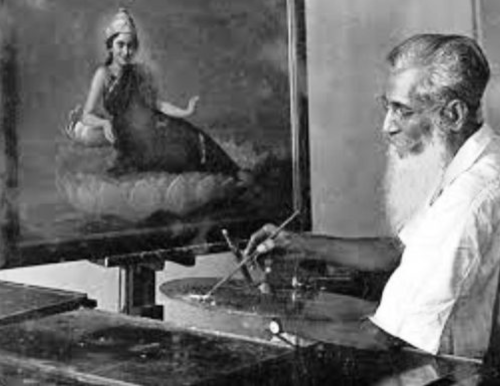Shakti Kapoor: It's Three Punches A Day

Sunil took one look at him and said, "You'll make a good 'bad guy' ".
Consider this. A normal healthy Delhi boy, a graduate, an apprentice with one of the capital's renowned travel agencies, winds up dinner one evening with the announcement that he's joining films-just like that. At that time, it sounded worse than a post-dinner burp.
How did the family react? "Sonny boy, films?" was all his father asked, so how come he felt smaller than that ant crawling in the sugar pot?
Of course they wouldn't understand. When did they ever? The script was the usual. Young man makes crucial decision. Family scorns him. Exit young man, one dark winter night. Years pass. Enter young man, riding a crest-it's fame. Family scorns no more. Bugles. Curtain.
That's how Shakti worked it out, when he took that train to Bombay.
From Bombay to Poona, that lovely city where they manufacture actors.
Two years of training. A ball, and nothing like what was to come.
Anyway, things were working according to that script he'd tucked away in his mind somewhere. His batch mates thought he was perfect star material. "With my rugged looks and casual air, they said I'd hit the screen, and no looking back."
Then the training drew to an end. Suddenly, Bombay seemed far, and the future appallingly bleak.
Shakti's seniors were still tramping around the industry looking for work. Good actors like Naseeruddin Shah and Mithun Chakraborty hadn't got a single break. Among the girls only Ranjeeta and Nita Mehta had one offer each.
That's when the enthusiasm gradually curdled and turned sour. What big bang, they weren't even sure of gaining a quiet little entry.
Somewhere round them, Arjun Hingorani came over to the institute looking for new faces for his film "Khel Khilari Ka". Minor roles, but nothing was too small. Shakti signed.
So, on to Bombay. The usual problems. No money, so nowhere to live and nothing to eat. Shakti moved in with Mithun for a while, but the poor guy was having trouble with his landlady so he had to leave. For food, it was eggs. Morning evening, night, till the city took on his sick smell-of eggs.
.png)
Sunil took one look at him and said, "You'll make a good 'bad guy' ".
Bad guy? Villain? What the hell was happening to that script?
Anyway, no time to ponder over fate's cruel twists. He just shrugged off that secret dream, rolled up his sleeves and the bad guy became.
Sunil signed Shakti for his "Yaari Dushman", and the roles began trickling in.
There was this acute problem about the house. One day, Shakti was chatting with Vinod Khanna who casually enquired, "You having accommodation problems?"
"Yeah, roads make bad homes," Shakti remarked dryly. "So take my flat at Juhu, it's furnished, here's the key." Simple.
For two years Shakti lived in Vinod's spare flat and Vinod even paid the electricity bills.
He worked very hard, modelled for three calendars and bought his first car A'61 model Fiat.
One day, he had a minor bangup with a big black Merc. Shakti got out all ready to fight it out-imagine, his new car! The owner of the Mrc just stuck out his head and drawled "Go on man, one scratch on my Merc costs more than your whole car, it wasn't anyone's fault." The Merc owner was Feroz Khan.
Talk about chance! So, Shakti got the grips.
He says he has the advantage over some others because he is adaptable. Can be cast opposite the youngest heroes and can perform credibly against the oldest.
"Look at the range," he says. "With Sanjay Dutt in 'Rocky', with Rishi Kapoor in 'Katilon Ke Katil', with Shatrughan Sinha in 'Do Ustad', with Dharmendra and Vinod Mehra in 'Baazi', with Manoj Kumar in 'Paapi Pet Ka Sawaal' and with Sanjeev Kumar in 'Do Waqt Ki Roti' ".
Narendra Bedi says of him, "He isn't another of those loud villains; give him those soft seduction roles and he'll do them as convincingly."
Then what went wrong in "Sargam"? "Sargam" he groans, "I had no choice. The director wanted all that facial contortion and snarling, I was too new to argue."
He's busy these days. Doing 4 shifts a day. Sleeping 2½ hours on an average, and no regrets.
"That's what I'm here for, to work", he says. Of course, in his enthusiasm, he had signed films he now wishes he hadn't. He says, "There are times when I'm shooting for four different films, but the role is identical-just hand out the punches. On an average, it's three punches a day."
"I now believe fate can be manipulated through hard work, and no more idyllic scripts," he grins. "This is real-life business."
This article was published in Filmfare magazine’s May 16-31, 1980 edition written by Madhulika Sharma.
The images and captions appeared in the feature are taken from the original article.
About the Author






.jpg)


